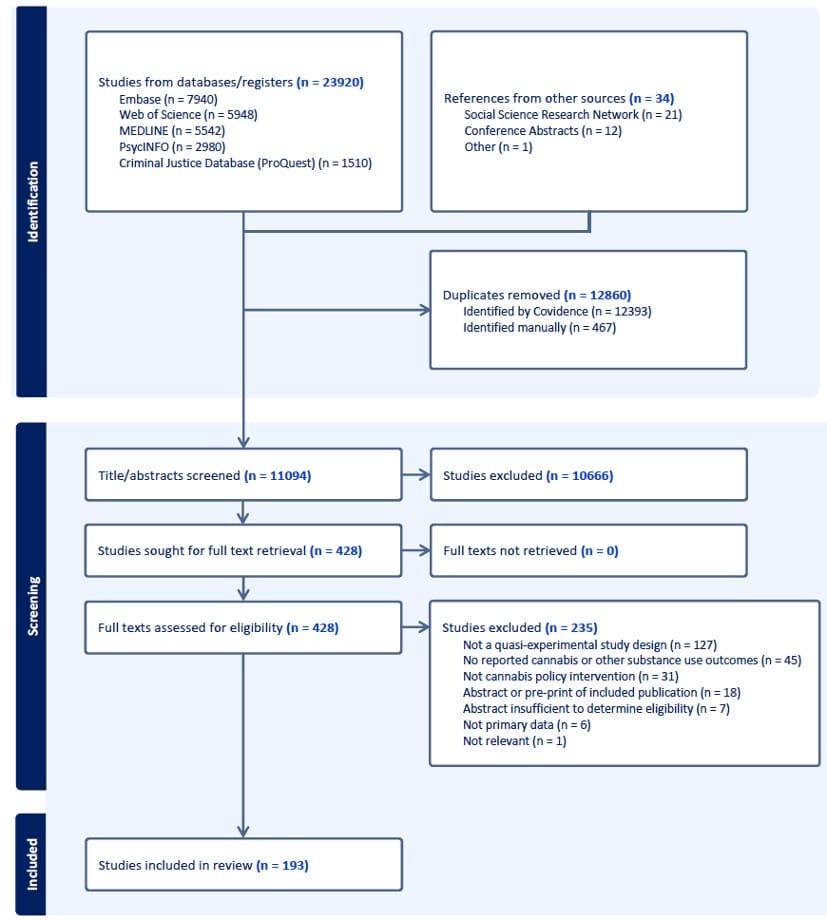Health Services/Policy
Impact of Global Cannabis Policy Changes on Cannabis and Other Substance Use: A Systematic Review Sarah Windle* Sarah Windle Peter Socha Jasleen Arneja Sam Harper Genevieve Gore Genevieve Gariepy Eva Graham Andrea Benedetti Arijit Nandi
Countries worldwide have liberalized their cannabis policies. Cannabis may be both a complement and a substitute for other substances, but the impacts of cannabis reforms on substance-related harms and benefits remain unclear. We are conducting a systematic review of quasi-experimental studies assessing the impact of cannabis policy changes on cannabis and other substance use (PROSPERO protocol registration: CRD42024547798). In contrast to other observational studies, quasi-experimental designs account for some sources of unmeasured confounding and can estimate the causal effects of policy changes under weaker assumptions.
We screened the title/abstract of 11,094 publications from five databases and grey literature, of which 428 publications were retrieved for full text screening, and 193 met the inclusion criteria (see flow diagram). Many included studies employed a difference-in-differences or interrupted time series approach, although other designs were eligible (e.g., regression discontinuity, instrumental variable). Most studies used data from North America and examined policies liberalizing cannabis use (e.g., medical or recreational legalization, with or without retail sales). Commonly reported outcomes included past-month cannabis, alcohol, or tobacco use, and opioid mortality; other studies examined substance use frequency, initiation, sales, prescribing, dependence, and healthcare utilization.
Next steps include data extraction, risk of bias assessment using ROBINS-I (V2), and synthesis. We anticipate sufficient studies for random effects meta-analysis with inverse variance weighting for the most common treatment-outcome pairs. Other pairs will be synthesized using a descriptive, analytical approach. This systematic review and meta-analysis will summarize the best available evidence concerning the impact of cannabis policies on substance use, to inform policy and public health decision-making worldwide, and to identify gaps in knowledge for future research.

